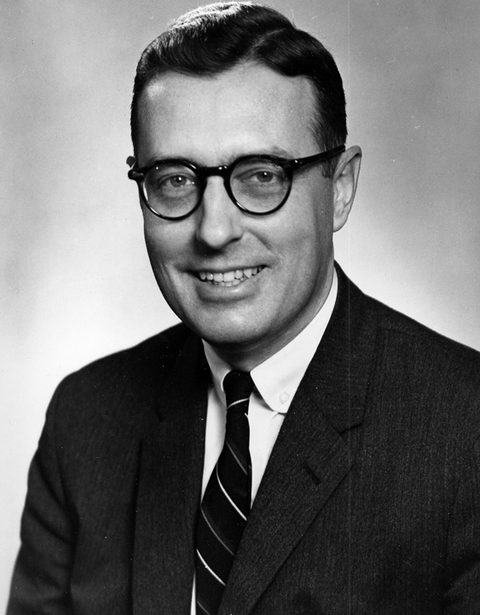
Thomas Hughes, Vietnam War Advisor And Foreign Policy Expert, Dies At Age 97
Thomas L. Hughes, former foreign policy advisor and Vietnam War critic within the administrations of U.S. Presidents John F. Kennedy and Lyndon B. Johnson, died on Jan. 2, 2023.
A Midwesterner from Mankato, Minn., Hughes was born Dec. 11, 1925. Developing an interest in politics, he became a Rhodes Scholar at Oxford, attended Yale Law School, and rose quickly in the political world after arriving in Washington, D.C. in 1955.
Hughes directed the Bureau of Intelligence and Research (INR) on behalf of the U.S. State Department in the 1960s, serving as Assistant Secretary of State for Intelligence and Research from 1961 to 1969.
Hughes was critical of the Vietnam War and helped LBJ’s Vice President, Hubert Humphrey, draw up a memorandum in 1965 outlining various reasons why the war was not worth fighting.
In the memo, Hughes wrote that a “full-scale military attack” against North Vietnam would “postpone any progress on arms control… weaken our position in the United Nations; it might require a call-up of reservists if we were to get involved in a large-scale land war—and a consequent increase in defense expenditures…finally and most important it would damage the image of the President of the United States—and that of the United States itself.”
“American wars have to be politically understandable by the American public,” Hughes went in the memo. “In World Wars I and II we had this…From a political viewpoint, the American people find it hard to understand why we risk World War III by enlarging a war under terms we found unacceptable 12 years ago in Korea, particularly since the chances of success are slimmer.”
Hughes questioned what American goals were in Vietnam and criticized the instability of the South Vietnamese government, adding, “Politically, people can’t understand why we would run grave risks to support a country which is totally unable to put its own house in order.”
He suggested that Johnson withdraw. “The best possible outcome a year from now would be a Vietnam settlement which turns out to be better than was in the cards because the President’s political talents for the first time came to grips with a fateful world crisis and so successfully.”
Johnson however did not heed the memorandum and subsequently excluded Vice President Humphrey from matters relating to Vietnam, according to The Washington Post, although he left Hughes in his position.
Hughes subsequently served as deputy ambassador to Britain and retired from government work in 1970. He became president of the Carnegie Endowment for International Peace from 1971-1991, where he continued to pursue his interests in foreign policy.
